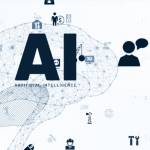Executive Summary
-
Discover how AI-driven personalized learning platforms are transforming education.
-
Explore real-world case studies of successful AI implementation in educational settings.
-
Learn about the benefits and challenges of AI in education.
-
Get expert insights on leveraging AI for effective personalized learning.
Introduction
In an era where digital transformation is reshaping every industry, education is no exception. The integration of Artificial Intelligence (AI) into educational systems has led to the development of personalized learning platforms, revolutionizing the way students learn and educators teach. This article explores the significance of AI in education, examining how these innovative platforms are enhancing learning experiences and outcomes. We will delve into real-world case studies of successful AI implementation, discuss the benefits and challenges, and offer expert insights on maximizing the potential of AI in personalized learning.
Definitions / Context
Personalized learning platforms are educational technologies that leverage AI to tailor learning experiences based on individual student needs, preferences, and learning paces. These platforms analyze data such as student performance, engagement levels, and learning styles to provide customized content and resources, ensuring a more effective and engaging learning process.
Benefits / Pros
-
Improved Learning Outcomes: AI personalizes the learning journey, enabling students to grasp concepts at their own pace, resulting in better retention and understanding.
-
Increased Engagement: By catering to individual interests and learning preferences, AI platforms boost student engagement and motivation.
-
Scalability: AI-driven platforms can accommodate large numbers of students, providing personalized learning experiences without overburdening educators.
-
Data-Driven Insights: Educators receive actionable insights into student performance, allowing for timely interventions and support.
Risks / Cons / Challenges
-
Data Privacy Concerns: The collection and analysis of student data raise significant privacy issues that need to be addressed through robust data protection measures.
-
Implementation Costs: Developing and maintaining AI-driven platforms can be costly, potentially limiting access for underfunded schools.
-
Resistance to Change: Traditional education systems and stakeholders may resist adopting AI technologies due to unfamiliarity or skepticism.
Implementing AI in Education: A Step-by-Step Guide
-
Assessment of Needs: Identify specific educational challenges and goals that AI can address.
-
Selection of Platform: Choose an AI-driven platform that aligns with the institution’s educational objectives.
-
Pilot Program: Initiate a pilot phase to test the platform’s effectiveness and gather feedback.
-
Data Collection and Analysis: Implement robust data collection processes while ensuring compliance with privacy regulations.
-
Full Deployment: Scale the platform across the institution, continuously monitoring and optimizing its performance.
A leading educational institution in California adopted an AI-driven platform to enhance math learning among middle school students. Within a year, standardized test scores improved by 25%, with students showing increased engagement and confidence in math. The platform’s adaptive learning paths and real-time feedback were key to this success.
Case Study: California School District
Expert Tips / Strategic Insights
-
Focus on Inclusivity: Ensure AI platforms are designed to accommodate diverse learning needs and backgrounds.
-
Continuous Training: Provide ongoing training for educators to maximize the effectiveness of AI tools.
-
Data Ethics: Prioritize ethical considerations in data collection and analysis to maintain trust and compliance.
Tools / Resources / Calculators
-
AI in Education Resource Hub: A comprehensive resource for exploring AI tools and best practices in education.
-
Learning Analytics Dashboard: A tool for educators to track and analyze student data effectively.
Conclusion
AI-powered personalized learning platforms are revolutionizing education by offering tailored educational experiences that boost engagement and learning outcomes. While challenges such as data privacy and implementation costs remain, the benefits of AI in education are undeniable. For educational institutions looking to stay ahead, embracing AI is no longer optional but a strategic necessity.



















